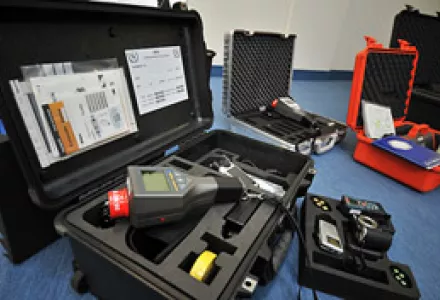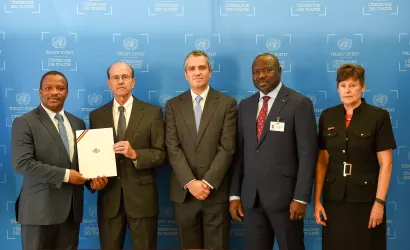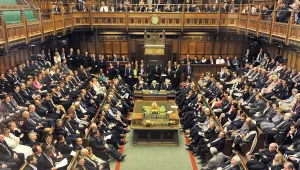A Game Theoretic Approach to Safeguards Selection and Optimization
This seminar presents the development of a game theoretic computational tool that explores inspector and proliferator strategies at an enrichment facility and suggests optimally efficient strategies for both actors.




